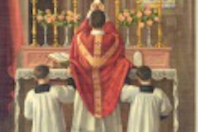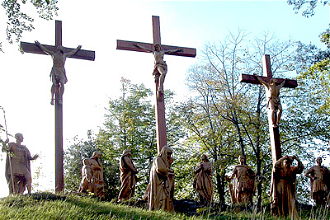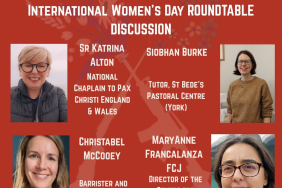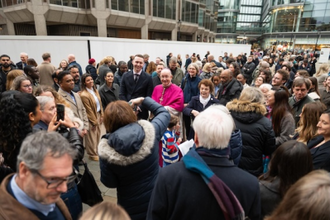A Rural view of Covid-19
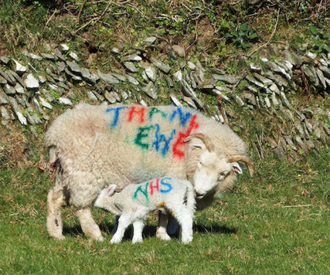
Exmore Horn Facebook page
The grief and sadness of over 30,000 deaths from Covid-19 is a sobering chapter in British history, and the altruism of key workers a matter of pride for the nation.
Some of us farmers have to confess a guilty secret - provided we are not afflicted, we are almost relishing the restrictions. Isolation is such a familiar state of being, that instead of being the cause of mental health anguish, it is now a blessing, on account of far more neighbourly telephone contact. With food and feed deliveries the accepted norm, there's more support than usual from within the community. Farm tourism excepted, plus some difficulties for milk producers, for beef and in horticulture, things could be worse.
The one communal activity much missed is church-going. The Catholic parish of St Stanislaus, Dulverton is a diaspora where parishioners are scattered amongst the villages and hamlets of southern Exmoor. The parish priest lives on the other side of the moor. Since lockdown the congregation has "travelled" widely, electronically visiting churches and cathedrals all over the world. Maintaining our connectedness has made us really think about our collective and spiritual welfare. Within our Diocese of Clifton, St Osmund's in Salisbury has been a source of great comfort. Their Church TV Masses, website and newsletter have been an inspiration.
Last Sunday was Good Shepherd Sunday. Sheep feature widely in the Gospels and our liturgy, so although the imagery is familiar to us, it is not so for the majority of modern society. Sheep recognise the shepherd's voice (as in John 10) in the same way that people's pets recognise their owners. The animals do not "hear" false imitations because it is familiarity and trust that counts. They are also quick to detect threat or malevolent intent, whether human or animal. Contrary to popular belief sheep are quite bright, being able to recognise up to fifty faces, including humans, for some years. Their only weakness is fear. Not having any natural defences their habitual response is flight, usually in a panic, so safeguarding them is one of the shepherd's responsibilities. He is also in charge of their welfare, and for ensuring they are fed, watered, nurtured and protected from adverse weather conditions.
So with lambing over and still with a few tame lambs on the bottle, mainly triplets that mother was neither able to cope with, nor a willing and able aunty could adopt, it's on with the usual spring jobs - spinning a bit of fertiliser, weed control, worm drenching lambs, docking the ewes (trimming round the back end with shears to prevent fly strike), repairing fencing and unblocking field drains.
How fortunate we are to be fully occupied. Most of us on Exmoor might be classed as asset rich and income poor. We count our blessings and live in the hope that when "normality" returns the new Agriculture Bill will recognise food production as a public good, and that food security policies will be given proper prominence.
Lindy Head farms a flock of Exmoor Horn sheep, an ancient indigenous breed, with her husband Robin. Until this spring she had been doing farmhouse bed, breakfast and evening meal for 40 years. In the winter she's a beater.
LINK
Exmore Horn Wool blog: https://exmoorhornwool.co.uk/blog/
Exmore Horn Wool Facebook page:www.facebook.com/exmoorhornwool/?ref=page_internal



